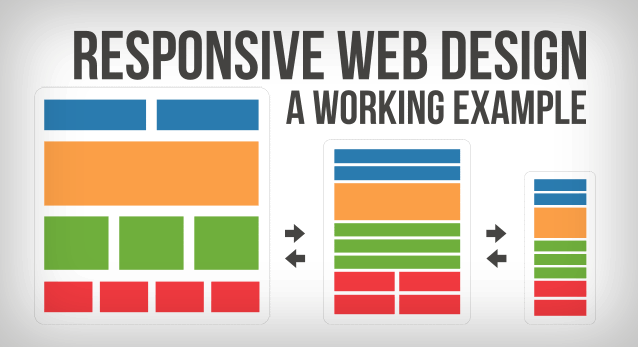Tube Rank: Your Guide to Video Success
Discover tips and insights for optimizing your video presence.
Responsive Web Design: The Secret Sauce to User Happiness
Discover the magic of responsive web design and unlock the secret to user happiness that keeps visitors coming back for more!
5 Key Principles of Responsive Web Design for Enhanced User Experience
In today's digital landscape, responsive web design has become essential for creating a seamless user experience across various devices. The first key principle is fluid grids, which ensures that your layout adjusts proportionally to the screen size. This flexibility helps maintain a consistent visual aesthetic, allowing users to navigate your site easily, whether they are on a smartphone or a desktop. Next, media queries play a vital role by applying different styles based on the device characteristics, such as width and orientation. By leveraging these queries, designers can tailor content specifically for each platform, ensuring that your website looks great everywhere.
Another crucial aspect of responsive web design is flexible images. It is important to use techniques like setting the image width to a percentage rather than a fixed pixel size. This enables images to scale appropriately, maintaining their quality and positioning regardless of the screen resolution. Moreover, the principle of mobile-first design encourages developers to focus on optimizing the experience for mobile users first before adapting the design for larger screens. Lastly, consistent testing across multiple devices ensures that any issues can be identified and fixed promptly, further enhancing the user experience and engagement with your content.

How Responsive Web Design Contributes to User Happiness
Responsive web design plays a crucial role in ensuring that users have a positive experience when navigating websites. In an era where smartphones and tablets are prevalent, a site that adapts seamlessly to various screen sizes enhances user satisfaction. This adaptability makes content accessible without the need for constant zooming or scrolling, fostering a more engaging and intuitive interaction with the site. As a result, users are more likely to stay longer, explore further, and return, knowing they can rely on a consistent experience across all devices.
Furthermore, responsive web design significantly influences loading times and overall site performance, which are critical factors in user happiness. A well-optimized responsive site minimizes loading delays, providing information swiftly and efficiently. Users appreciate not having to wait, and fast-loading pages can reduce bounce rates and increase conversion rates. Ultimately, when websites prioritize the user experience through responsive design, they not only meet user needs but also cultivate loyalty and trust, essential ingredients for success in today's digital landscape.
Is Your Website Responsive? 3 Ways to Test for Optimal User Experience
In today's digital landscape, ensuring that your website is responsive is crucial for delivering an optimal user experience across various devices. A responsive website automatically adjusts its layout and content to fit different screen sizes, providing seamless navigation whether users are on a desktop, tablet, or smartphone. To confirm your website's responsiveness, here are three effective methods you can utilize:
- **Use Browser Developer Tools:** Most modern web browsers come equipped with developer tools that allow you to simulate different devices. By accessing these tools, you can switch between various screen sizes and check how your website elements adapt in real-time.
- **Try Online Responsive Testers:** There are numerous online tools designed specifically to assess website responsiveness. These tools provide comprehensive insights into how your site looks on multiple devices, allowing you to spot potential issues.
- **Conduct Real Device Testing:** While emulators provide valuable information, nothing beats testing on actual devices. Gather a range of devices with varying screen sizes and resolutions and browse your site to identify any user experience hiccups.